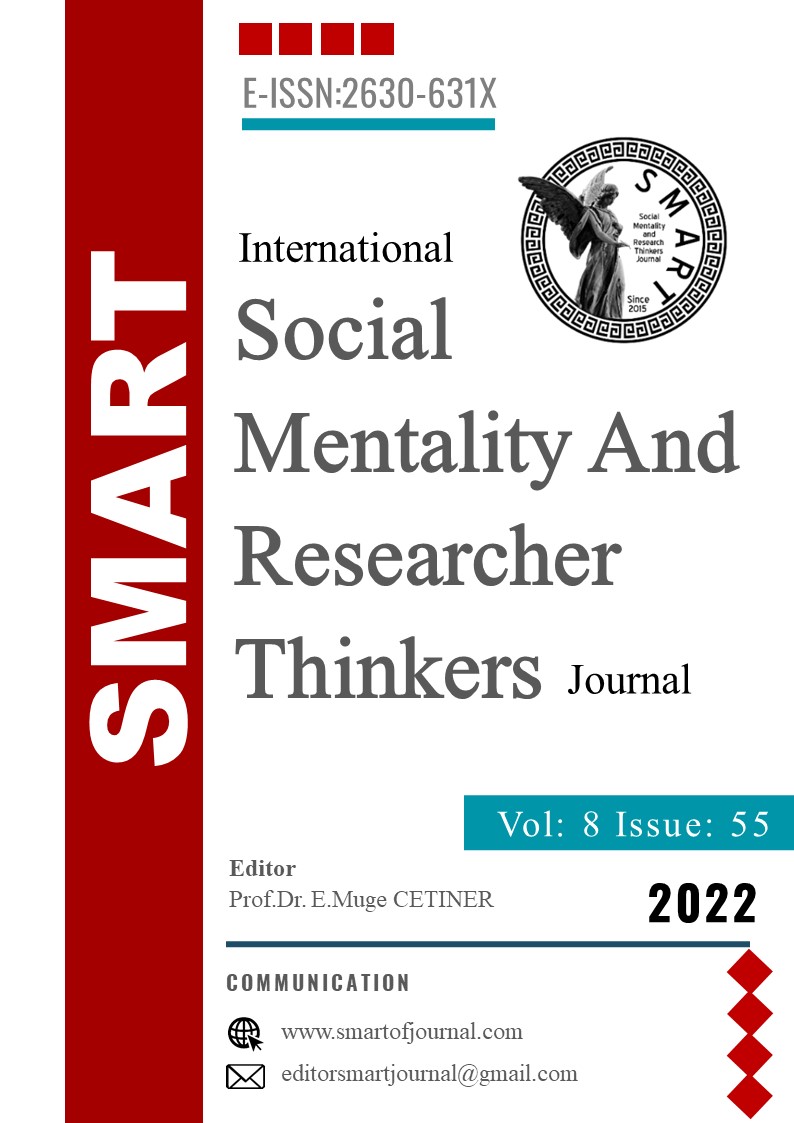Author :
Abstract
Küreselleşen dünyada insanlar artık belirli bir lokasyon olmaksızın her yerden, teknoloji ve ağlar vasıtasıyla bilgi ve iletişime erişim sağlayabiliyor. Finans sektörü de dijital dünyada yerini aldı. Bununla birlikte dijital değişimler, yönetim değişiklikleri, strateji farklılıkları yeni ekosisteme göre şekillenmeye başlamıştır. Bu değişimlerin getirdiği güncel ve faydalı yönler bulunurken, tehlikeli yönlerini tam olarak ölçemediğimiz bir ekosistemin içerisinde yer almaktayız. Merkeziyetçi olmayan finans sisteminin finans piyasasına getirdiği kripto paralar, blockchain dağıtık sistemler, sınırlı ama açık kodlu yazılımlar, coinler bu değişikliklerden birkaçını oluşturmaktadır. Büyük fiziki yapıların ve çok sayıda çalışanın olmadığı, bunun yerine az sayıda çalışan, çeviklik ve inovasyon gücü yüksek teknoloji firmaların, yapay zeka ve makineler yardımı ile işlerini yürütülebildiği görülmektedir. Bunların hayata geçmesi tamamen yüksek teknoloji, altyapı, internet, yetkin işgücü, mevcut ekosisteme uygun statejilerin üretilmesi ile mümkündür. Geleneksel finans ile dijital finans sektörünün entegresi, rekabet ederken aynı zamanda beraber çalışmaları gerektiği önemli noktalardan biridir.
Keywords
Abstract
In the globalizing world, people can now access information and communication through technology and networks without a specific location. The financial sector has also taken its place in the digital world. However; digital changes, management changes, strategy differences began to take shape according to the new ecosystem. While there are up-to-date and beneficial aspects brought by these changes, we are located in an ecosystem that also has dangerous aspects that we cannot fully measure. Cryptocurrencies, blockchain systems, limited but open source software, coins are some of these changes. It is seen that there are no large physical structures and many employees, instead, technology companies with a small number of employees and high agility and innovation power can carry out their business with the help of artificial intelligence and machines. The realization of these is only possible with high technology, infrastructure, internet, competent workforce, and the production of strategies suitable for the existing ecosystem. The integration of traditional finance and digital finance sector is one of the important points where they should work together while competing.
Keywords
- Ahlström, H., & Monciardini, D. (2021). The Regulatory Dynamics of Sustainable Finance: Paradoxical
- Ahlström, H., & Monciardini, D. (2021). The Regulatory Dynamics of Sustainable Finance: Paradoxical Success and Limitations of EU Reforms. Journal of Business Ethics, 1-20.
- Aksoy, B., & Bilgel, D. (2019). Finansal teknoloji şirketleri ve geleceğin bankacılığı: açık bankacılık. Avrupa Bilim ve Teknoloji Dergisi, (17), 1097-1105.
- Artar, Y., & ŞEN, İ. K. (2020). Dijital Ekonomide Finansal Raporlamaya İlişkin Sorunlar Ve TürkiyeAçısından Çözüm Önerileri. Ömer Halisdemir Üniversitesi İktisadi ve İdari Bilimler Fakültesi Dergisi, 13(3), 426-445.
- Bayraktar, G. (2015). Siber Savaş ve Ulusal Güvenlik Stratejisi. İstanbul: Yeniyüzyıl Yayınları.
- Bulazar, A. R., & Küçükçolak, Ö. Ü. R. A. (2021). Finans sektöründe fintek etkisi. Working Paper Series, 2(1), 53-63.
- Carstens, A. (2018). Big tech in finance and new challenges for public policy. speech to FT Banking Summit, 2.
- Cokçetin, G. (2017). Digital Sustainability in the Banking and Finance Sector. In Sustainability in a Digital World (pp. 181-187). Springer, Cham.
- Deloitte, S. (2016). Türkiye’deki Dijital Değişime CEO Bakışı.
- Frost, J., Gambacorta, L., Huang, Y., Shin, H. S., & Zbinden, P. (2019). BigTech and the changing structure of financial intermediation. Economic Policy, 34(100), 761-799.
- Gensch, C. O., Prakash, S., & Hilbert, I. (2017). Is Digitalisation a Driver for Sustainability?. In Sustainability in a digital world (pp. 117-129). Springer, Cham.
- Hasan, M. M., Popp, J., & Oláh, J. (2020). Current landscape and influence of big data on finance. Journal of Big Data, 7(1), 1-17.
- Jiang, L. (2020, June). Research on Financial Management Innovation of Small and Medium Enterprises in theContext of Big Data. In Journal of Physics: Conference Series (Vol. 1575, No. 1, p. 012107). IOP Publishing.
- Lin, T. C. (2016). Compliance, technology, and modern finance. Brook. J. Corp. Fin. & Com. L., 11, 159.Mavlutova, I., & Volkova, T. (2019, October). Digital Transformation of Financial Sector and Challengies forCompetencies Development. In 2019 7th International Conference on Modeling, Development and Strategic Management of Economic System (MDSMES 2019) (pp. 161-166).
- Ozkaya, E., & Aslaner, M. (2019). Hands-On Cybersecurity for Finance: Identify vulnerabilities and secure your financial services from security breaches. Packt Publishing Ltd.





